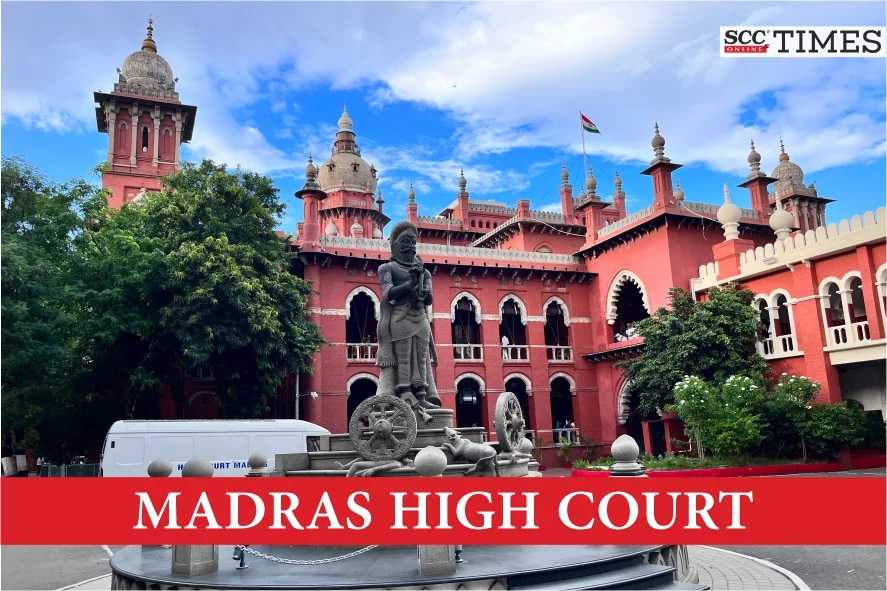Madras High Court: In a series of writ petitions concerning compassionate appointments, a Single Judge Bench of Battu Devanand, J. strongly criticised the bureaucratic inaction in implementing court orders, noting that the case reflected a “lethargic attitude” on the part of several officials. The Court observed that such indifference demonstrates a lack of regard for the common man and underprivileged litigants, who continue to be denied the benefits of judicial relief due to administrative apathy. The Court expressed its intent to initiate suo motu contempt proceedings against the Chief Secretary to the Government of Tamil Nadu.
Accordingly, the Registrar (Judicial) of the Madras High Court was directed to obtain details of all officers who held the post of Chief Secretary from 19-09-2023 to the present, and to register a contempt case against them under the Contempt of Courts Act, 1971, read with Article 215 of the Constitution of India.
The Court noted that while allowing the writ petitions, the Court considered a series of Government Orders issued by the State of Tamil Nadu for implementing the scheme of compassionate appointments from 1972 to 2023. The Court also examined the Tamil Nadu Civil Service (Appointment on Compassionate Grounds) Rules, 2023 (‘Rules 2023’), notified under Government Order, Labour Welfare and Skill Development Department, dated 08-03-2023, issued in exercise of the powers under the proviso to Article 309 of the Constitution of India. Upon review, the Court identified several infirmities in the 2023 Rules concerning the extension of the compassionate appointment scheme to the legal heirs of deceased employees in the State Government and its instrumentalities.
The Court noted that it had previously directed the Chief Secretary of the Tamil Nadu Government to constitute a committee to examine the Rules, 2023. The Committee was to recommend amendments, including setting out a clear time frame for granting compassionate appointments and assessing the feasibility of maintaining a State-wide list of eligible dependents. The Court had ordered that the Committee’s report be submitted within two months and that an action taken report be filed before the Court within three months. However, upon review of the records, the Court found that no such report had been submitted within the stipulated time.
The Court expressed strong anguish and dissatisfaction over the conduct of the Chief Secretary in failing to comply with its directions and in not executing them in letter and spirit. The Court observed that when the Chief Secretary, being the head of the State executive disregards the authority of the Court, it sets a poor precedent, and it would be unreasonable to expect subordinate officers within the State Government to adhere to Court orders with due seriousness.
The Court observed with concern that State Government officers have repeatedly filed Writ Appeals only after contempt petitions were initiated and statutory notices for personal appearance were issued. Even after dismissal of such appeals, Special Leave Petitions are often filed with considerable delay. While the respondents have the right to file appeals, such filings must adhere to the statutory limitation period. The Court noted that occasional delay may be understandable, but it has become a consistent practice among State officers to file delayed appeals only in response to contempt proceedings. This conduct, the Court emphasised, is unacceptable.
The Court remarked that the present matter exemplifies the lethargic attitude of several bureaucrats, reflecting a lack of concern for the common man and disadvantaged litigants seeking justice. Despite clear directions issued by the Court, the affected individuals are unable to enjoy the fruits of the relief granted. To send a strong and unambiguous message to officials who fail to implement Court orders and act with impunity, the Court expressed its intent to initiate suo motu contempt proceedings against the Chief Secretary.
Accordingly, the Court directed the Registrar (Judicial), Madras High Court, to obtain details of all officers who held the post of Chief Secretary to the Government of Tamil Nadu from 19-09-2023 to the present date, and to register a contempt case against them under the provisions of the Contempt of Courts Act, 1971, read with Article 215 of the Constitution of India. The Registrar was further instructed to issue notices to the officers concerned to enable them to file their responses by the next date of the hearing.
The matter will next be taken up on 20-06-2025.
[V.Nithya v. Tamil Nadu State Transport, 2025 SCC OnLine Mad 2617, decided on 06-06-2025]
Advocates who appeared in this case :
For Petitioner: Mr.V.Ajoy Khose, Mr.N.Vijaya Basker, Mr.B.M.Subash, Mr.G.P.Arivuchuda
For Respondent: Mr.A.Sundaravadanam Standing Counsel, Mr.P.Kumaresan, AAG and Mr.A.Edwin Prabakar, G.P. assisted by D.Ravichander, SGP, Ms.Mekhala, Standing Counsel



